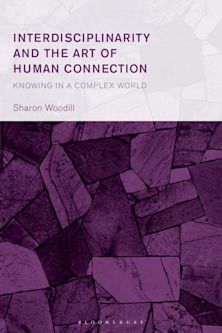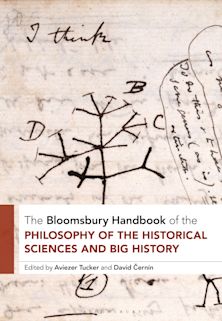- Home
- ACADEMIC
- Philosophy
- Epistemology
- Intellectual Agency and Virtue Epistemology: A Montessori Perspective
Intellectual Agency and Virtue Epistemology: A Montessori Perspective
Intellectual Agency and Virtue Epistemology: A Montessori Perspective
You must sign in to add this item to your wishlist. Please sign in or create an account
Description
Drawing on the work of Maria Montessori and contemporary virtue epistemologists such as Linda Zagzebski and Jason Baehr, Intellectual Agency and Virtue Epistemology presents a new interpretation of the nature of intellectual agency and its associated virtues.
Focusing on Montessori's interpretation of specific virtues including sensory attentiveness, intellectual love and intellectual humility, it discusses why these are virtues, why one can be held responsible for them, and how they relate to each other. Moreover, it considers pedagogical implications of considering these capacities to be virtues. Intellectual Agency and Virtue Epistemology not only reveals the value of seeing Montessori as a virtue epistemologist, it encourages educationalists to take seriously the cultivation of intellectual virtues as an important part of the education of children.
Table of Contents
2. Maria Montessori's Interested Empiricism.
3. Intelligence, the Unconscious, and the Body.
4. Epistemic Virtues.
5. Intellectual Character.
6. Intellectual Love.
7. Sensory Acuity and Sensory Attentiveness.
8. Physical Dexterity.
9. Intellectual Patience and Quickness.
10. Intellectual Humility and Courage.
11. Conclusion
Bibliography
Index
Product details

| Published | 12 Dec 2019 |
|---|---|
| Format | Ebook (Epub & Mobi) |
| Edition | 1st |
| Extent | 272 |
| ISBN | 9781350018839 |
| Imprint | Bloomsbury Academic |
| Publisher | Bloomsbury Publishing |
About the contributors
Reviews
-
This is a provocative and well-executed book, brimming with potentially revolutionary insights regarding both intellectual virtue in general as well as specific intellectual virtues. It belongs in the personal library of any virtue epistemologist.
T. Ryan Byerly, Senior Lecturer in Philosophy, University of Sheffield, UK
-
This book is among the first, if not the first, in the analytic epistemology literature to consider Maria Montessori as a philosophers in her ow right. This is a wonderful and lucid guide to the contributions a heretofore neglected philosopher can make to contemporary debates in virtue epistemology.
Charles Lassiter, Assistant Professor of Philosophy, Gonzaga University, Spokane, USA

ONLINE RESOURCES
Bloomsbury Collections
This book is available on Bloomsbury Collections where your library has access.



































